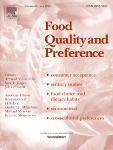Co-occurrence networks of Twitter content after manual or automatic processing. A case-study on “gluten-free”
Dublin Core
Título
Tema
Abstract
The objectives were to study the impact of text pre-treatment (codification based in qualitative
analysis or just pre-cleaning) and to apply co-occurrence networks for analysing what is said on Twitter about specific topics like “gluten-free”. As such, 16,386 tweets in Spanish containing terms “sin-gluten” and “glutenfree” were collected. A subset of 3000 tweets was used to make co-occurrence networks two ways: i) from the
manually coded text and ii) from pre-cleaned text. Results indicate that the co-occurrence network from precleaned text provides meaningful information showing structure and relevance for terms like the network from
coded text. The whole set of tweets was used to explore Twitter information on gluten-free, showing users share information about products, occasions, social situations, and places but also product characteristics, sensations,
and diet or health issues related to the products. Five product categories, critical for the lack of gluten (bread, cake, cookie, beer, and pizza), occupied most tweets, and according to the related terms, were intended to recommend how to get (buying or cooking) these gluten-free products and to exhibit what (how, when, and where) they prepare and eat. These aspects were different among products, and separated co-occurrence networks allowed better identification.
Autor
Fuente
Editor
Fecha
Derechos
Información sobre Derechos de Autor (Por favor lea este aviso antes de abrir los documentos u objetos) La legislación uruguaya protege el derecho de autor sobre toda creación literaria, científica o artística, tanto en lo que tiene que ver con sus derechos morales, como en lo referente a los derechos patrimoniales con sujeción a lo establecido por el derecho común y las siguientes leyes (LEY 9.739 DE 17 DE DICIEMBRE DE 1937 SOBRE PROPIEDAD LITERARIA Y ARTISTICA CON LAS MODIFICACIONES INTRODUCIDAS POR LA LEY DE DERECHO DE AUTOR Y DERECHOS CONEXOS No. 17.616 DE 10 DE ENERO DE 2003, LEY 17.805 DE 26 DE AGOSTO DE 2004, LEY 18.046 DE 24 DE OCTUBRE DE 2006 LEY 18.046 DE 24 DE OCTUBRE DE 2006) ADVERTENCIA - La consulta de este documento queda condicionada a la aceptación de las siguientes condiciones de uso: Este documento es únicamente para usos privados enmarcados en actividades de investigación y docencia. No se autoriza su reproducción con fines de lucro. Esta reserva de derechos afecta tanto los datos del documento como a sus contenidos. En la utilización o cita de partes debe indicarse el nombre de la persona autora.
Formato
Idioma
Tipo
Identificador
Document Item Type Metadata
Original Format
- Fecha de agregación
- September 18, 2020
- Colección
- Bibliografía Nacional Química
- Tipo de Elemento
- Document
- Etiquetas
- Alimentos, Alimentos libre de gluten, Comportamiento del consumidor, Twiter
- Citación
- Puerta, Patricia, “Co-occurrence networks of Twitter content after manual or automatic processing. A case-study on “gluten-free”,” RIQUIM - Repositorio Institucional de la Facultad de Química - UdelaR, accessed July 26, 2024, https://riquim.fq.edu.uy/items/show/6134.
- Archivos

